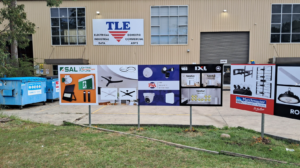Common Mistakes to Avoid in Your Literature Review
A literature review is a crucial component of any research project, whether a dissertation, thesis, or academic paper. It provides a comprehensive overview of existing research on a given topic and helps to identify gaps or areas needing further investigation. However, writing a literature review can be challenging, and many students often make mistakes that can weaken their work. This article will discuss the most common mistakes to avoid in your literature review, helping you create a strong and well-structured review that supports your research.
Not Defining the Scope of Your Review
Failing to Specify the Research Question
One of the most common mistakes students make in literature review writing is not clearly defining the scope of their review. Without a clear research question or objective, it’s easy to get overwhelmed by the sheer volume of literature available. You may end up including studies that are not relevant to your research, which dilutes the focus of your review.
Always define your research question or hypothesis before starting your literature review to avoid this mistake. This will help you stay focused and ensure that the studies you include are directly related to your topic.
Including Irrelevant Studies
Another mistake related to the scope of the review is including irrelevant studies. This often happens when students try to cover a range of literature that is too broad in an attempt to make their review more comprehensive. However, including irrelevant studies can detract from the clarity and focus of your review.
Stick to studies that directly relate to your research question or topic. Doing so will create a more cohesive narrative and ensure your review remains relevant.
Failing to Analyze the Literature Critically
Summarizing Without Analysis
A common mistake in literature review writing is merely summarizing the studies without offering critical analysis. A literature review is more than just a summary of existing research; it should analyze and synthesize the findings to provide new insights.
For instance, it’s important to highlight the strengths and weaknesses of the studies you review. Analyze how the methodologies differ, examine any conflicting findings, and discuss how these differences may impact your research. A critical approach will strengthen your review and demonstrate a deeper understanding of the subject.
Lack of Comparison Between Studies
Failing to compare the studies you include is another common mistake. A literature review should present individual studies and identify patterns, trends, and gaps in the literature. When reviewing studies, consider how they relate to one another. Do they have similar findings? Are there conflicting results? How do their methodologies compare?
By comparing studies, you create a more nuanced literature review that offers a deeper insight into your field’s current state of research.
Poor Organization and Structure
Lack of Clear Structure
A well-organized literature review should have a clear structure that guides the reader through the various studies and themes. One of the common mistakes students make is not organizing their literature review properly, making it difficult for readers to follow the argument.
To avoid this, organize your review thematically or chronologically, depending on what suits your research best. If you choose a thematic structure, group studies based on similar themes or concepts. On the other hand, a chronological structure may be useful if you want to show the research development over time.
Neglecting to Use Headings and Subheadings
Using headings and subheadings in literature review writing is essential for improving readability. Many students neglect this, resulting in a lengthy and dense review that is difficult to follow.
Headings and subheadings break the review into manageable sections and help to guide the reader through the various parts of your analysis. Ensure each section covers a specific aspect of your review, and the headings should reflect the key themes or topics you are discussing.
Ignoring Key Theories and Landmark Studies
Overlooking Foundational Research
When writing a literature review, including key theories and landmark studies in your field is important. A common mistake is focusing solely on the most recent research while ignoring foundational studies shaping the field.
Failing to include these studies can weaken your literature review, as it suggests that you have not fully understood the background and context of your research area. Ensure that your review includes classic and recent studies to provide a comprehensive literature overview.
Focusing Only on Positive Results
Another mistake to avoid in literature review writing is focusing only on studies that have positive results or align with your research. Ignoring studies that present conflicting or negative findings can create a biased review, which weakens the credibility of your analysis.
Incorporate studies with varying results to show a balanced view of the literature. This will strengthen your review and provide a more complete understanding of the topic.
Poor Citation Practices
Inconsistent or Incorrect Citations
One of the most common mistakes students make when writing a literature review is inconsistent or incorrect citation. Failing to cite sources properly can lead to accusations of plagiarism and can weaken your credibility as a researcher. Additionally, inconsistent citation styles can make your review look unprofessional.
Ensure you consistently follow the correct citation style (APA, MLA, Chicago, etc.) throughout your review. Use citation management tools like EndNote or Zotero to keep track of your references and avoid errors.
Over-Reliance on Secondary Sources
Another citation-related mistake is over-relying on secondary sources rather than primary studies. While secondary sources can be useful for providing background information, they should not replace primary research studies in your literature review.
To create a robust review, prioritize primary studies and use secondary sources sparingly, ensuring that your analysis is grounded in the most relevant and original research.
Not Updating the Literature
Using Outdated Sources
Using outdated sources is another common mistake in literature review writing. Research is constantly evolving, and new studies are published regularly. Relying on outdated literature can make your review seem irrelevant and out of touch with current developments in your field.
To avoid this mistake, include the most recent research on your topic. Conduct a final search for new studies before submitting your literature review to ensure it is up-to-date.
Failing to Identify Research Gaps
One of the key purposes of a literature review is to identify gaps in the existing research. Failing to do so is a significant oversight. A literature review should summarize what is known and highlight what is not yet known or understood about your topic.
Identify areas where further research is needed, and discuss how your study will contribute to filling these gaps. This will demonstrate that you thoroughly understand the literature and can offer valuable insights through your research.
Lack of Synthesis
Presenting Studies in Isolation
One of the major errors in literature review writing is presenting studies in isolation without synthesizing the findings. Simply listing and summarizing individual studies without connecting them to your research question creates a fragmented and disjointed review.
To create a cohesive narrative, look for commonalities between the studies and integrate their findings into a broader discussion. Synthesis is essential for creating a meaningful literature review that contributes to understanding your research topic.
Failing to Tie the Review to Your Research
A final mistake to avoid is failing to tie your literature review back to your research. A literature review provides context for your study, showing how it fits within the existing body of research.
Link the studies you review to your research question or hypothesis. Discuss how the literature supports or challenges your research and explain how your study will contribute to the field.
Conclusion
Writing a strong literature review is a critical part of the research process, but it’s easy to make mistakes. You can create a well-organized, comprehensive, and insightful literature review by avoiding these common pitfalls—such as failing to define the scope, neglecting critical analysis, and using poor citation practices. This will strengthen your research and demonstrate your expertise in the field.
FAQs
1. What is a literature review?
A literature review is a comprehensive summary and evaluation of existing research on a specific topic. It identifies key themes, gaps, and trends in the literature, helping to establish the context for new research.
2. Why is a literature review important?
A literature review is important because it provides a foundation for your research by demonstrating the current state of knowledge, highlighting gaps in the literature, and situating your study within the broader academic discourse.
3. How do I define the scope of my literature review?
To define the scope, clearly state your research question or hypothesis. This will guide your selection of relevant studies and help maintain focus throughout the review.
4. What common mistakes should I avoid in my literature review?
Common mistakes include failing to define the research question, including irrelevant studies, summarizing without critical analysis, poor organization, and inconsistent citation practices.














Post Comment